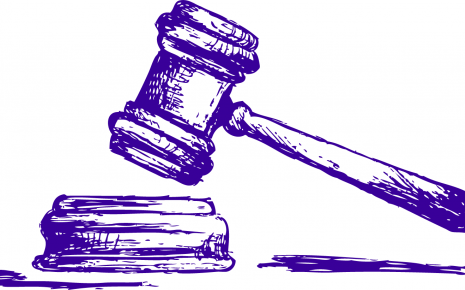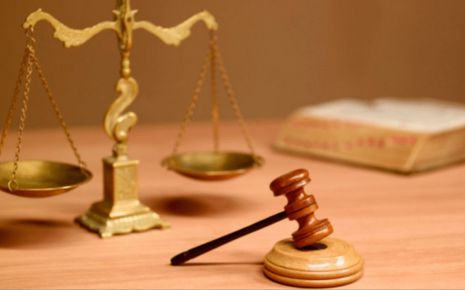Section 171D IPC
Personation at elections is a crime that is included in Section 171D of the
Indian Criminal Code (IPC). This section makes it unlawful to imitate another
person in order to cast a ballot in an election. Personation is defined as
claiming to be someone else.
The section171 D of IPC is as follows:
"Whoever at an election applies for a voting paper on votes in the name of any other person, whether living or dead, or in a fictitious name, or who having voted once at such election applies at the same election for a voting paper in his own name, and whoever abets, procures or attempts to procure the voting by any person in any such way, commits the offence of personation at an election."
Simply put, the following actions are prohibited by this section
This is an important section as it deals with prevention of voting in a fraudulent manner. It helps in smooth conduct of elections without any disturbance. It ensures that the votes casted by the citizens are legitimate and not based on fraud, otherwise it will hamper the results of the elections.
Analysis
Essentials of section 171D of Indian Penal Code 1860
The key elements of section 171D of the IPC, which addresses personation at elections, are as follows:
Punishment given under this section
This offense carries a sentence of up to three years in prison, a fine, or a combination of the two.
The fundamentals of Section 171 D have been reinforced by a number of important judgements rendered by Indian courts to aid in comprehending the application and interpretation of the provision.
Cases related to section 171D of IPC
E Anoop v. State of Kerala:
The prosecution claimed that the petitioner entered the booth, went before the polling place's authorities, and pretended to be another legitimate voter in that particular booth. He requested a ballot so that he may exercise his right to vote. An election official questioned his identity. The prosecution claimed that the petitioner had applied for a voting document in someone else's name, which is a crime punishable under I.P.C. S.171(F).
The word "applies for" was insisted upon by the court. The court ruled that there is no need to demonstrate that the inductee tried to cast a ballot in the election. It is sufficient evidence to show that he requested for the ballot. Thus, this offence comes under section 171D of IPC.
These case laws show how seriously Indian courts take the crime of election personation as well as how crucial it is to preserve the integrity of the electoral system. These judgments have improved the legal foundation for ensuring free and fair elections in India by implementing the application and meaning of section 171D of the IPC.
Illustrations
Here are some illustrations that can help in understanding the how the section 171D of IPC works:
These illustrations exhibit the various conducts in which the offense of personation at elections can be committed and highlight the significance of maintaining the reliability of the electoral process.
Conclusion
This section provides us the way to deal with crimes related to elections. By this we can ensure better functioning of the election commission as well as smooth working of the election process. This helps in prevention of false and fraudulent results of the election, with this provision the outcome of the election will be fair.
Even though there are other laws available for ensuring free and fair elections, there are still areas in India where the voting booth and votes are manipulated by people or the parties in order to win such elections. They hamper the voting process by casting wrong or more than one votes just to win the elections. These party members also wrongfully influence locals to vote in their favor and even threaten them.
We still lack behind in rectifying such problem which is very much prevalent in India. We need more strict rules to prevent this. We need to increase more security near voting booths especially in rural areas. We can change the way of voting and make it stricter so that no one can vote twice or use false name, but at same time the process must be easier to understand so that everyone can caste their vote easily. "
We need to raise public knowledge about how to conduct free and fair elections and the processes so that results of such elections does not get affected by any unfair means. More information should be given to the public regarding the penalties for such offences. By adopting all such methods there are better chances of conducting free and fair elections. It would happen more effectively if people are made more aware of the penalties and repercussions.
The section171 D of IPC is as follows:
"Whoever at an election applies for a voting paper on votes in the name of any other person, whether living or dead, or in a fictitious name, or who having voted once at such election applies at the same election for a voting paper in his own name, and whoever abets, procures or attempts to procure the voting by any person in any such way, commits the offence of personation at an election."
Simply put, the following actions are prohibited by this section
- To seek a ballot or vote in someone else's name, whether they are alive or not, or to vote under a false name.
- You can cast several ballots in the same election by requesting a voting paper in your own name after you've already done so.
- Assist someone else in committing any of the aforementioned crimes.
This is an important section as it deals with prevention of voting in a fraudulent manner. It helps in smooth conduct of elections without any disturbance. It ensures that the votes casted by the citizens are legitimate and not based on fraud, otherwise it will hamper the results of the elections.
Analysis
Essentials of section 171D of Indian Penal Code 1860
The key elements of section 171D of the IPC, which addresses personation at elections, are as follows:
- According to the section, a person must have used another person's identity to vote or attempt to vote in an election. It is possible that the person who is being impersonated is a real person.
- Personation during elections is illegal and needs proof of intention. The individual must have intended to manipulate the election and obstruct its free and fair conduct.
- The section also bans abetting, soliciting, or seeking to obtain the voting by any individual using this illegal method. Everyone who facilitates, encourages, or helps the crime be committed is likewise accountable for the crime.
- The purpose of this section is to stop unauthorized voting and uphold the integrity and fairness of the electoral process.
Punishment given under this section
This offense carries a sentence of up to three years in prison, a fine, or a combination of the two.
The fundamentals of Section 171 D have been reinforced by a number of important judgements rendered by Indian courts to aid in comprehending the application and interpretation of the provision.
Cases related to section 171D of IPC
- Mohinder Singh Gill vs. Chief Election Commissioner:
In this case, the Supreme Court of India held that impersonation at elections is a serious offense and upheld the validity of section 171D of the IPC. The court observed that the provision was enacted to ensure that elections are conducted in a free and fair manner, and any attempt to interfere with this process would be dealt with strictly.
- State of Orissa v. Gokul Barik: "The respondent misidentified himself at the Ghasian voting booth in the Patnagarh Assembly Constituency on election day,
according to the facts that gave rise to this case.
The prosecution failed to provide any proof that the respondent engaged in an illegal act of personation or undue influence during the election. In other words, the prosecution failed to demonstrate that the defendant willfully interfered with or attempted to interfere with the free exercise of the electoral right, threatened any candidate or voter or caused or attempted to cause a candidate or voter to believe that he or any person in whom he is interested will become or will be made the target of action.
The first element to be proved by the prosecution in such a case is that the accused has applied for a voting paper at the election in question. In order to constitute an offence under 171d it is necessary to prove that accused is doing that act with which he is charged is actuated by corrupt motive
The court observed that the respondent's approach to the second polling officer was a mere preparation to commit the offence, but, according to S. 511 of the Criminal Code of 1860, preparation is not considered an attempt. Hence, the respondent cannot be found guilty under either that section or S. 171D.
The accused was acquitted.
E Anoop v. State of Kerala:
The prosecution claimed that the petitioner entered the booth, went before the polling place's authorities, and pretended to be another legitimate voter in that particular booth. He requested a ballot so that he may exercise his right to vote. An election official questioned his identity. The prosecution claimed that the petitioner had applied for a voting document in someone else's name, which is a crime punishable under I.P.C. S.171(F).
The word "applies for" was insisted upon by the court. The court ruled that there is no need to demonstrate that the inductee tried to cast a ballot in the election. It is sufficient evidence to show that he requested for the ballot. Thus, this offence comes under section 171D of IPC.
These case laws show how seriously Indian courts take the crime of election personation as well as how crucial it is to preserve the integrity of the electoral system. These judgments have improved the legal foundation for ensuring free and fair elections in India by implementing the application and meaning of section 171D of the IPC.
Illustrations
Here are some illustrations that can help in understanding the how the section 171D of IPC works:
- A goes to the polling booth and castes a vote in the name of his dead father and mother. This will constitute as an offence under the section 171D of IPC.
- X has already casted his vote and now he again forges a vote in name of his wife. This is an offence under section 171D of IPC.
- If X caste his vote in one booth and goes to another booth to caste his vote under a different name will also constitute as an offence.
- If someone goes and caste a vote on behalf of someone with his/her knowledge or consent will be an offence.
- A group of people collude to impersonate registered voters and cast votes on their behalf without their knowledge or consent. As the group is attempting to personate other voters in order to influence the outcome of the election, this would be a violation of section 171D of the IPC.
- X tries to cast a vote on behalf of Y who is not currently present at the booth but is a registered voter. X will be held accountable as she is abetting the offence.
- Y uses a fictious name and castes his vote twice. He will be held liable for this offence under section 171D of IPC.
- If someone applies to vote in two different places will also be held liable.
These illustrations exhibit the various conducts in which the offense of personation at elections can be committed and highlight the significance of maintaining the reliability of the electoral process.
Conclusion
This section provides us the way to deal with crimes related to elections. By this we can ensure better functioning of the election commission as well as smooth working of the election process. This helps in prevention of false and fraudulent results of the election, with this provision the outcome of the election will be fair.
Even though there are other laws available for ensuring free and fair elections, there are still areas in India where the voting booth and votes are manipulated by people or the parties in order to win such elections. They hamper the voting process by casting wrong or more than one votes just to win the elections. These party members also wrongfully influence locals to vote in their favor and even threaten them.
We still lack behind in rectifying such problem which is very much prevalent in India. We need more strict rules to prevent this. We need to increase more security near voting booths especially in rural areas. We can change the way of voting and make it stricter so that no one can vote twice or use false name, but at same time the process must be easier to understand so that everyone can caste their vote easily. "
We need to raise public knowledge about how to conduct free and fair elections and the processes so that results of such elections does not get affected by any unfair means. More information should be given to the public regarding the penalties for such offences. By adopting all such methods there are better chances of conducting free and fair elections. It would happen more effectively if people are made more aware of the penalties and repercussions.
Law Article in India
Legal Question & Answers
Lawyers in India - Search By City
LawArticles
How To File For Mutual Divorce In Delhi

How To File For Mutual Divorce In Delhi Mutual Consent Divorce is the Simplest Way to Obtain a D...
Increased Age For Girls Marriage

It is hoped that the Prohibition of Child Marriage (Amendment) Bill, 2021, which intends to inc...
Facade of Social Media

One may very easily get absorbed in the lives of others as one scrolls through a Facebook news ...
Section 482 CrPc - Quashing Of FIR: Guid...

The Inherent power under Section 482 in The Code Of Criminal Procedure, 1973 (37th Chapter of t...
The Uniform Civil Code (UCC) in India: A...

The Uniform Civil Code (UCC) is a concept that proposes the unification of personal laws across...
Role Of Artificial Intelligence In Legal...

Artificial intelligence (AI) is revolutionizing various sectors of the economy, and the legal i...








Please Drop Your Comments